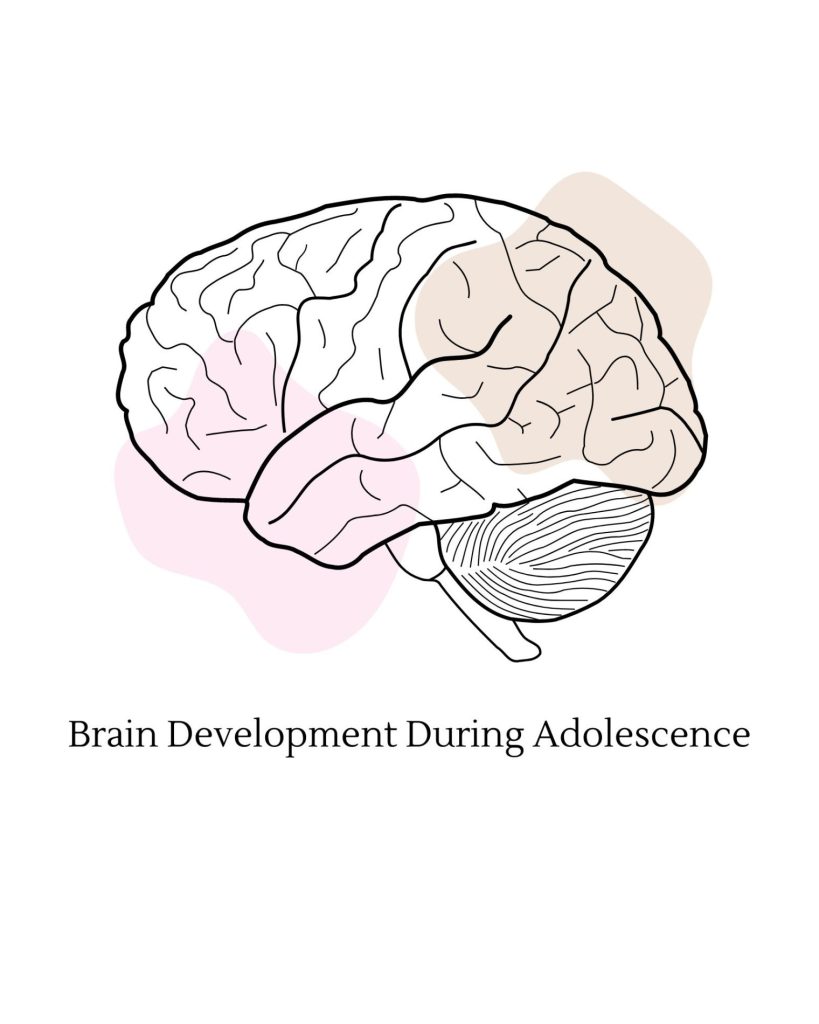Brain Development Among Adolescents
in Local Events, Local News, Massachusetts News, National News

Brain development during adolescence
During adolescence, the brain undergoes significant development and transformation. This period is marked by a growth spurt in brain size and complexity, particularly in the frontal lobe, which is responsible for decision-making, planning, and self-control.
The brain also undergoes a process called pruning, where unused neural connections are eliminated, and frequently used connections are strengthened, making the brain more efficient. Emotional regulation centers, such as the amygdala, continue to mature, often resulting in heightened emotional experiences. Additionally, the hippocampus, crucial for learning and memory, develops further, enhancing the ability to acquire new skills and knowledge.
Overall, these changes lay the foundation for adult cognitive and emotional functioning, making adolescence a critical period for brain development.
What factors influence brain development during adolescents?
Several factors influence development during adolescents such as:
- Genetics: Genetic makeup plays a significant role in brain development, influencing everything from brain structure to neurotransmitter levels.
- Hormones: The surge of hormones during puberty, including adrenal stress hormones, sex hormones, and growth hormones, significantly impacts brain development.
- Environment: The environment, including family, school, and social settings, can shape brain development. Positive environments can promote healthy brain growth, while negative environments, such as those with high stress or trauma, can hinder it.
- Substance Use: The use of alcohol, drugs, and other substances can negatively affect brain development, leading to long-term cognitive and emotional issues.
- Nutrition: Proper nutrition is crucial for brain development. Deficiencies in essential nutrients can impair cognitive functions and overall brain health1.
- Physical Activity: Regular physical activity has been shown to enhance brain function and development, particularly in areas related to learning and memory3.
- Social Interactions: Interactions with peers and adults can influence brain development. Positive social interactions can enhance cognitive and emotional development.
- Sleep: Adequate sleep is essential for brain development. Sleep deprivation can impair cognitive functions and emotional regulation.
How can alcohol and substance use affect brain development among adolescence?
Adolescence is a crucial period for brain development, setting the stage for adulthood. Drinking alcohol and using substances during adolescence can have a significant negative effect on the brain in several ways:
- Brain Development Interference: Adolescence is a critical period for brain development. Alcohol and substance use can interfere with this process, leading to long-term changes in brain structure and function.
- Cognitive Impairments: Heavy drinking and substance use can reduce the size of important brain regions like the frontal lobe (involved in planning and decision-making), hippocampus (involved in learning and memory), and amygdala (involved in emotion regulation). This can result in cognitive impairments, including difficulties with memory, attention, and decision-making.
- Increased Risk-Taking Behavior: The adolescent brain is more prone to risk-taking behaviors due to its ongoing development. Substance use can exacerbate this tendency, leading to dangerous behaviors such as drinking and driving, unsafe sexual practices, and other risky activities.
- Emotional and Behavioral Issues: Substance use during adolescence can disrupt the normal development of brain regions that regulate emotions and behavior, potentially leading to increased impulsivity, anxiety, depression, and other mental health issues.
- Long-Term Consequences: The changes in brain structure and function caused by adolescent substance use can have long-lasting effects, potentially impacting academic performance, social relationships, and overall quality of life.
Why is surrounding yourself with positive and sober friends during adolescence significant to brain development?

Positive friends provide emotional support, reducing stress and anxiety, which is crucial for healthy brain growth. They encourage engaging in constructive activities that stimulate cognitive functions, such as problem-solving and critical thinking. Sober friends help avoid the negative impacts of substance use, protecting the brain from potential damage and promoting better decision-making skills.
Additionally, these friendships foster a supportive environment that enhances social skills and emotional regulation, contributing to overall mental well-being. By choosing friends who uplift and support healthy habits, adolescents can create a foundation for a resilient and well-developed brain.
How can parents and caregivers create a supportive environment for brain development?
- Provide a Safe and Sable Environment: Ensure that your home is a safe and secure place. Consistent routines and a stable environment help reduce stress, which is beneficial for brain development1.
- Encourage Healthy Habits: Promote a balanced diet, regular physical activity, and adequate sleep. These habits are essential for overall brain health and development1.
- Foster Positive Relationships: Build strong, supportive relationships with your adolescent. Positive social interactions with family and friends can enhance emotional and cognitive development1.
- Stimulate Learning and Curiosity: Encourage your adolescents to explore new interests and engage in activities that challenge their brain. This can include reading, playing musical instruments, or participating in sports and hobbies2.
- Model and Teach Emotional Regulation: Help your adolescent learn to manage their emotions by modeling healthy coping strategies and providing guidance on how to handle stress and challenges.
- Limit Substance Exposure: Educate your adolescent about the risks of alcohol, drugs, and other substances. Encourage healthy, substance-free activities and provide support to avoid peer pressure.
- Promote Open Communication: Maintain open lines of communication. Encourage your adolescent to express their thoughts and feelings and listen actively to their concerns.
